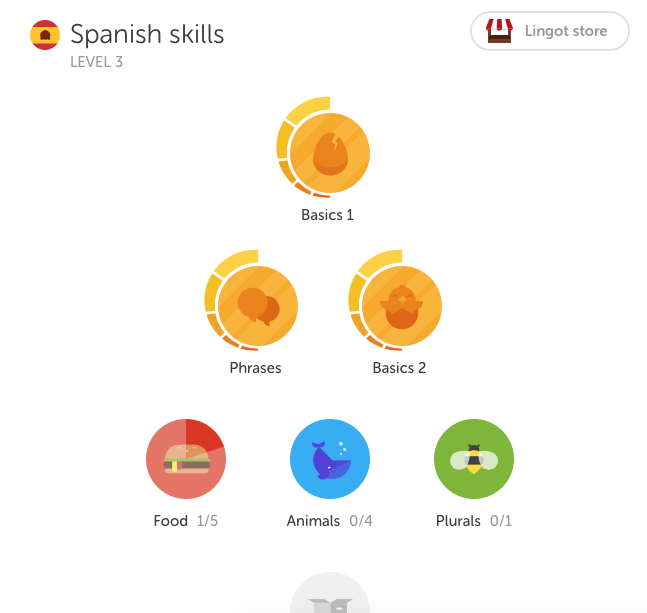Freebie Website #5: Duolingo
Shae, Frugal Boy, and myself are all monolingual, meaning that we only speak a single language. Growing up in the Midwest did not present many opportunities or push us into situations where we would need to know a language besides English.
Depending upon whom you ask, the percentage of English speaking world population is between 9-27% and is widely expected to decrease to as little as 5% by 2050. For a family like us that is looking to start traveling abroad more extensively (Frugal Boy’s passport should be arriving later this week), that poses a serious problem. We need to learn at least one more language especially if we have any hope of spending part/all of our retirement abroad.
Cue DuoLingo, a free and cutely themed online/app language learning platform.

Q. Is it really free?
Yes. As with any free service, I am skeptical to say the least. Call me a pessimist or a realist, but I do not believe in a free lunch. Duolingo cleverly makes money by offering advanced users ‘immersion’ courses where they translate real world text. Naturally, there are companies wanting human translation and are willing to pay for it. So to sum up, Duolingo makes money by users who hone their language skills by translating things for them.
Q. How does it work?
After setting up an account and picking a language that you would like to learn, Duolingo starts you on a skill tree. You can test out of skills if you already have some knowledge, but for the most part you start with very easy words and phrases and work your way to more complicated ones.
There is heavy gamification, it feels like a game not a classroom, and each block is short enough that you can do it in a few minutes (perfect for those short downtimes we all have in our lives).
Q. Will I become fluent?
No. Well, I cannot say for certain, but from other reviews that I have read online, it seems as if you complete the entire skill tree (a process that can take 3-4 months for a highly ambitious individual) you will acquire about 1800-2200 vocabulary words. From my limited understanding of languages, fluency requires closer to 8000 vocabulary words and conversational practice.
Q. What languages are offered, what are you studying?
Shae and I are both studying Español. We have several trips that we’d like to do in the near future to Central America and we are also intrigued with the idea of retiring abroad (adventure, cost of living, and climate). Duolingo offers:
- Spanish
- French
- German
- Italian
- Portuguese
- Dutch
- Irish
- Danish
- Swedish
- Esperanto
- Turkish
- Norwegian
- Ukrainian
Q. Can I learn along with you?
Absolutely. Sign up and then search for username ‘frugalliving’ to add me to your Leaderboard. We can get competitive in learning a new skill and keep each other active. As of writing this I am currently ahead of Shae on points earned. 😀
Q. Were you paid/compensated for this review?
I wish. Sadly, these views are my own and I did not receive compensation from Duolingo (or anyone else for that matter for writing this blog post). If Duolingo would like to compensate me, I would gladly accept payment.
Wrapping Up
In conclusion, we have just started to use the free service Duolingo to improve our globe trotting abilities. While we may not be fluent speakers at the conclusion of the skill tree, we should be able to at least make a decent attempt at communicating with the locals. From what I have heard, even an attempt at the local language can make a big difference in how you are treated in return. Surprise surprise, people appreciate it when visitors make the effort to assimilate to their own culture.
Links:
